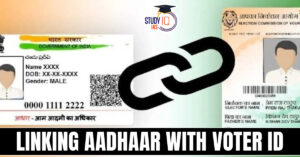Table of Contents
In a groundbreaking ruling, the Supreme Court of India has declared the electoral bonds scheme introduced by the government unconstitutional. Former Chief Election Commissioners (CECs) have welcomed this decision, emphasizing its significance in addressing concerns surrounding transparency and potential misuse of funds in political financing.
Supreme Court Declared Electoral Bonds Unconstitutional
The Supreme Court declared electoral bonds unconstitutional, directing SBI to cease issuance and submit bond details to the Election Commission. Unanimously, the bench found provisions allowing anonymous funding to political parties, via Finance Act 2017 amendments, violating Article 19(1)(a) and Article 14. It criticized the deletion of provisos, permitting unlimited corporate funding, deeming it arbitrary. The court highlighted the undue influence of companies on the electoral process and emphasized the need to curb corruption and ensure fair elections. SBI must disclose bond details to ECI, to be published within respective deadlines.
Electoral Bonds Under Scrutiny in Supreme Court
The Electoral Bonds Scheme in India, currently under scrutiny in the Supreme Court, has faced criticism for its alleged lack of transparency and potential to promote corruption. Petitioners, including the Association for Democratic Reforms, argue that the scheme undermines democracy by favouring ruling parties and creating disparities in political funding.
They contend that it infringes upon citizens’ right to know the sources of political funding, a fundamental right. The scheme’s impact on democracy, financial disparities among political parties, and concerns about foreign investments in the political process have been key points in the ongoing legal debate, with the hearing yet to conclude.
We’re now on WhatsApp. Click to Join
What is an Electoral Bond?
Electoral bonds are financial instruments used to make donations to political parties in India. Individuals and entities can issue these bonds to support eligible political parties. These bonds function like regular banknotes, bearing no interest or redemption clauses. Political parties must be registered under Section 29A of the Representation of the People Act, 1951, to be eligible for receiving such donations. Electoral bonds can be purchased digitally or through Demand Drafts (DDs) or checks. They were introduced on January 29, 2018, under the leadership of the PM Narendra Modi-led NDA government when the Electoral Bond Scheme 2018 was officially established.
Former CECs’ Perspectives
- O P Rawat’s Satisfaction with Addressed Concerns: Former CEC O P Rawat, actively involved in discussions regarding the electoral bond scheme, expressed satisfaction with the judgment, citing its effective response to concerns regarding shell companies and loss-making firms funneling funds through electoral bonds. Despite minimal impact on the upcoming Lok Sabha elections, Rawat highlighted the long-term implications for electoral reform.
- S Y Quraishi’s Triumph for Transparency: Former CEC S Y Quraishi hailed the verdict as a triumph for transparency and democracy, noting that every objection raised by constitutional experts had been addressed. He emphasized the directive for transparency in disclosing electoral bond information to prevent delays by political parties.
- Navin Chawla’s Critique of Lack of Transparency: Former CEC Navin Chawla criticized the electoral bond scheme for its opacity from inception, stating that the ruling has exposed its flaws and highlighted the necessity for transparency in electoral funding.
- T S Krishnamurthy Advocates for Transparent Funding Mechanism: Former CEC T S Krishnamurthy lauded the decision and advocated for a transparent electoral funding mechanism. He proposed the establishment of a national election fund to eliminate direct donations to political parties and ensure fairness and transparency.
Implications for Electoral Reform
The Supreme Court’s ruling marks a significant step towards promoting transparency, accountability, and integrity in the electoral process. It sets a precedent for robust electoral reforms aimed at safeguarding India’s democratic principles as the nation prepares for future elections.
Supreme Court’s Hearing on Electoral Bonds Scheme
The Supreme Court has expedited a vital hearing set for October 31, focusing on challenges to India’s electoral bond scheme, a critical component of political party financing. Prashant Bhushan, representing the NGO Association for Democratic Reforms (ADR), argues that the concerns must be addressed before the scheme’s potential use in the 2024 general elections. Bhushan’s central argument revolves around anonymous funding via electoral bonds, suggesting potential corruption and a threat to citizens’ right to a corruption-free nation, as per Article 21.
The Court, led by Chief Justice DY Chandrachud, acknowledges the gravity of these issues, scheduling four petitions for the final hearing. This case involves transparency, political funding, and potential democracy subversion, sparked by substantial funds, approximately ₹12,000 crores, channelled to political parties via electoral bonds, with a substantial share favouring a major political party.
The complexity of these legal matters, including an electoral bond scheme, Right to Information Act applicability to political parties, and changes to the Foreign Contribution Regulation Act, requires meticulous consideration.

Objectives of Electoral Bonds Scheme
The primary aim of the Electoral Bonds Scheme is to reform and sanitize the political funding system in India. It seeks to prevent unaccounted and black money from infiltrating the country’s political funding landscape. The government asserts that the scheme enhances transparency in political donations while simultaneously safeguarding the donor’s identity.
Denomination of Electoral Bonds
Electoral bonds are available in various denominations, making them accessible to a broad spectrum of contributors. These denominations include multiples of Rs 1,000, Rs 10,000, Rs 1 lakh, Rs 10 lakh, and Rs 1 crore. Importantly, there is no specified limit on the number of bonds an individual or company can purchase.
Electoral Bonds Scheme Eligibility Criteria
To be eligible to receive contributions through the Electoral Bonds Scheme, a political party must meet specific criteria:
- Registration: The political party should be registered under section 29A of the Representation of the Peoples Act, 1951 (43 of 1951).
- Minimum Vote Share: The party must have secured a minimum of one per cent of the votes polled in the most recent Lok Sabha or State election.
- Verified Account: The Election Commission of India should have allotted the political party a verified account.
Electoral Bonds Scheme Sale Window
Electoral bonds are made available for purchase during specified windows, adding structure to the donation process:
- Quarterly Windows: These bonds are put on sale during 10-day periods at the commencement of each quarter, which falls in January, April, July, and October.
- Lok Sabha Election Years: During Lok Sabha election years, an extended 30-day sale window may be designated by the Central Government to accommodate the increased political activity.
Advantages of Electoral Bonds Scheme
- Anonymity: The scheme allows donors to make political contributions anonymously, which can be seen as a safeguard for those who may fear repercussions or harassment for their political affiliations.
- Transparency for Donors: For those making contributions through electoral bonds, the process is transparent and traceable, as the bonds can be purchased using formal financial channels.
- Incentive for Digital Payments: The scheme promotes digital transactions by enabling individuals and entities to purchase electoral bonds electronically, aligning with India’s push for a cashless economy.
- Reduced Cash Transactions: By offering an alternative to cash donations, the scheme aims to decrease the volume of unaccounted cash in political funding.
Disadvantages of Electoral Bonds Scheme
- Unlimited Donations: Critics argue that the scheme allows for unrestricted political contributions, potentially leading to an undue influence of money in politics.
- Opaque Funding: The anonymity of donors to political parties can raise concerns about transparency and accountability, as it makes parties less accountable to the public.
- Legal Challenges: The introduction of electoral bonds involved amendments through money bills, which have faced legal challenges for being constitutionally questionable.
- Exemptions and Amendments: Amendments to various acts, including the Companies Act and the FCRA Act, have raised concerns, particularly regarding exempting companies from disclosing political contributions and allowing foreign companies to fund Indian political parties.
- Violation of Election Guidelines: The scheme’s amendments have been criticized for violating guidelines set by the Election Commission of India regarding the disclosure of political parties’ finances.
- Money Laundering Concerns: The issuance of physical bonds, which are transferable without creating a transparent trail, has raised concerns about the potential for money laundering.
Electoral Bonds Scheme UPSC
In a groundbreaking decision, the Supreme Court of India deemed the electoral bonds scheme unconstitutional, citing concerns over transparency and potential misuse of funds. Former Chief Election Commissioners (CECs) welcomed the ruling, emphasizing its significance in electoral reform. The court directed the State Bank of India (SBI) to cease bond issuance and disclose details to the Election Commission, underscoring violations of constitutional articles and the scheme’s susceptibility to corruption. The ongoing legal scrutiny reflects broader concerns about political funding transparency and accountability. Despite its objectives, the electoral bonds scheme faces challenges, prompting calls for reforms to ensure democratic integrity and fair electoral practices.


 Linking Aadhaar with Voter ID Endangers ...
Linking Aadhaar with Voter ID Endangers ...
 Article 142 of Indian Constitution, Sign...
Article 142 of Indian Constitution, Sign...
 Pakistan-Occupied Kashmir (PoK): History...
Pakistan-Occupied Kashmir (PoK): History...





















